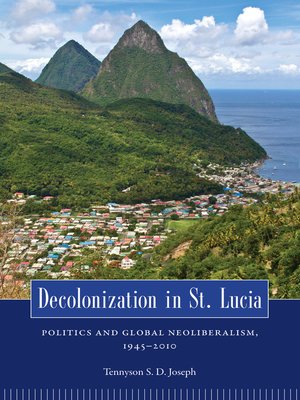Decolonization in Saint Lucia
ebook ∣ Politics and Global Neoliberalism, 1945–2010 · Caribbean Studies
By Tennyson S. D. Joseph

Sign up to save your library
With an OverDrive account, you can save your favorite libraries for at-a-glance information about availability. Find out more about OverDrive accounts.
Find this title in Libby, the library reading app by OverDrive.



Search for a digital library with this title
Title found at these libraries:
| Library Name | Distance |
|---|---|
| Loading... |
Tennyson S. D. Joseph builds upon current research on the anticolonial and nationalist experience in the Caribbean. He explores the impact of global transformation upon the independent experience of St. Lucia and argues that the island's formal decolonization roughly coincided with the period of the rise of global neoliberalism hegemony. Consequently, the concept of "limited sovereignty" became the defining feature of St. Lucia's understanding of the possibilities of independence. Central to the analysis is the tension between the role of the state as a facilitator of domestic aspirations on one hand and a facilitator of global capital on the other.
Joseph examines six critical phases in the St. Lucian experience. The first is 1940 to 1970, when the early nationalist movement gradually occupied state power within a framework of limited self-government. The second period is 1970 to 1982 during which formal independence was attained and an attempt at socialist-oriented radical nationalism was pursued by the St. Lucia Labor Party. The third distinctive period was the period of neoliberal hegemony, 1982-1990. The fourth period (1990-1997) witnessed a heightened process of neoliberal adjustment in global trade which destroyed the banana industry and transformed the domestic political economy. A later period (1997-2006) involved the SLP's return to political power, resulting in tensions between an earlier radicalism and a new and contradictory accommodation to global neoliberalism. The final period (2006-2010) coincides with the onset of a crisis in global neoliberalism during which a series of domestic conflicts reflected the contradictions of the dominant understanding of sovereignty in narrow, materialist terms at the expense of its wider antisystematic, progressive, and emancipator connotations.







